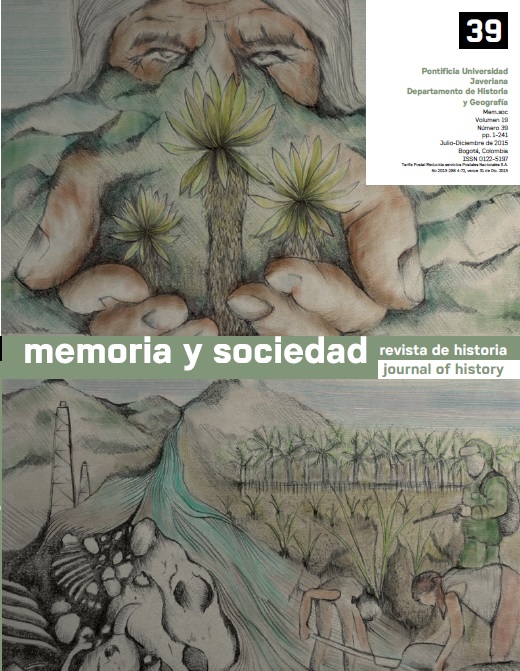Abstract
In this article the state initiatives for environmental conservation are analyzed as a technique for the production of spaces, rural populations and subjectivities. Those initiatives generate unfinished, contingent and everchanging effects, influenced by the power systems which operate in the regions where they are implemented. From the notion of production of space1 , the transformations operating on public policies in a frontier zone as the Guaviare are examined since the area was declared a forest reserve of the Amazonia in 1959. On the other hand, the mechanisms of aggregation, simplification and standardization2 that technical expertise has developed to guide the state intervention in this region of the country are identified. Likewise, it analyzes the effects and adaptations of the environmental policies in the addressed communities, showing their density and multiple causes in a particular socio-historical stage as the Guaviare is.The journal Memoria y Sociedad is registered under a Creative Commons Attribution 4.0 International Public License. Thus, this work may be reproduced, distributed, and publicly shared in digital format, as long as the names of the authors and Pontificia Universidad Javeriana are acknowledged. Others are allowed to quote, adapt, transform, auto-archive, republish, and create based on this material, for any purpose (even commercial ones), provided the authorship is duly acknowledged, a link to the original work is provided, and it is specified if changes have been made. Pontificia Universidad Javeriana does not hold the rights of published works and the authors are solely responsible for the contents of their works; they keep the moral, intellectual, privacy, and publicity rights.
Approving the intervention of the work (review, copy-editing, translation, layout) and the following outreach, are granted through an use license and not through an assignment of rights. This means the journal and Pontificia Universidad Javeriana cannot be held responsible for any ethical malpractice by the authors. As a consequence of the protection granted by the use license, the journal is not required to publish recantations or modify information already published, unless the errata stems from the editorial management process. Publishing contents in this journal does not generate royalties for contributors.

